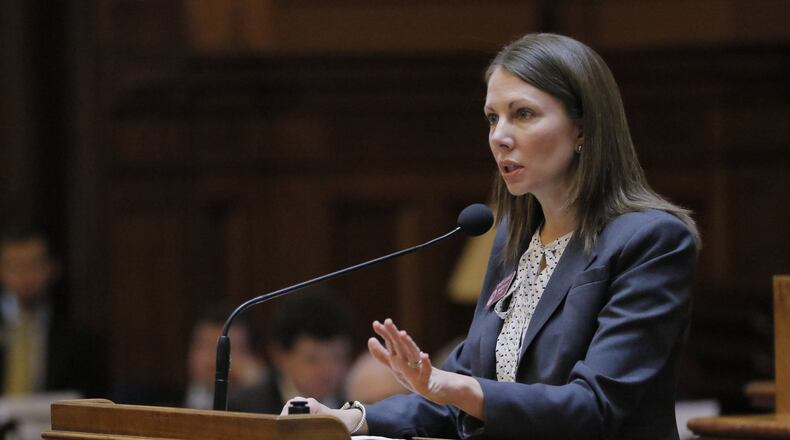Rep. Stacey Evans, D-Smyrna, is running for governor of Georgia, and she’s touting a major Medicare fraud case she argued with her private law practice in a campaign video.
She argued a civil lawsuit she argued alongside three other firms representing the U.S. government against DaVita HealthCare Partners Inc., a leading provider of dialysis services in the United States. They represented two whistleblowers.
The lawsuit alleged that DaVita was knowingly generating unnecessary waste when administering drugs to dialysis patients, then billing Medicare for the waste.
The company did not admit wrongdoing, but paid $450 million in settlements to resolve the claims.
Washington University Law professor Kathleen Clark said that referring to the settlement as a victory is accurate, and she characterized the settlement sum as an impressive feat.
Was it one of the biggest in Medicare fraud history, though?
When we asked Evans’ campaign what they meant by “private lawsuit,” they said they were referring to lawsuits filed under the False Claims Act, whistleblowers’ main vehicle to sue on behalf of the federal government for Medicare fraud when the government does not intervene.
Justice Department spokesperson Nicole Navas confirmed Evans’ statement.
“DaVita recovery was one of the largest ever obtained by a relator in a matter declined by the United States,” Navas said.
There have been larger settlements, but only when the government has gone after fraud directly. In this case, the Justice Department chose not to intervene. Navas declined to comment on why it didn’t participate.
“It shouldn’t be taken as a government determination that the case doesn’t have merit,” Clark said, noting the government has limited resources to pursue such cases.
Lin Wood, the lead counsel on the case, said the government likely was unaware of all the details of the case when it decided not to pursue a lawsuit.
“We developed a tremendous body of factual evidence that I believe the government was unaware of at the time they made their decision,” Wood said. He said that otherwise the government would have been likely to intervene.
When the government doesn’t intervene, clients are entitled to at least 25 percent and no more than 30 percent of the settlement; according to Wood and Evans, they received 28 percent. The remainder, 72 percent or $324 million, went to the government.
Wood called Evans an integral part of the case, and characterized the other two firms as having played a minor role.
We wondered if that money went directly to taxpayers, as Evans said in the video.
Steve Ellis, vice president of Taxpayers for Common Sense, agreed with Evans’ wording that the money went to taxpayers, which he called a proxy for the treasury. Reducing the treasury’s deficit translates to a benefit to taxpayers.
“The taxes that individual citizens pay is not reduced nor does the money go directly into service benefiting people,” Ellis said. “But a smaller deficit means it is less likely that taxes are raised or services cut.”
Our rating
Evans said that she “helped win one of the biggest private lawsuits against Medicare fraud in history.” The lead counsel on the case corroborated her role in it, and the Justice Department confirmed its historic importance.
Her claim that they recovered $324 million for taxpayers also checks out.
We rate this statement True.
“I helped win one of the biggest private lawsuits against Medicare fraud in history. The government declined to pursue the case, so my firm did, and we recovered $324 million for taxpayers.”
— Stacey Evans on Monday, June 12th, 2017 in a campaign video
About the Author
Keep Reading
The Latest
Featured

